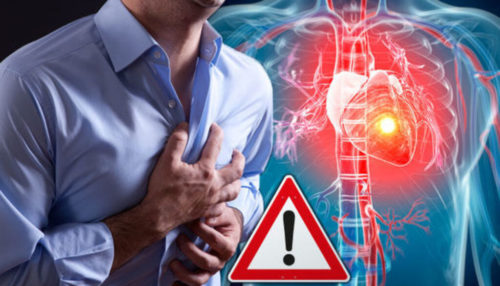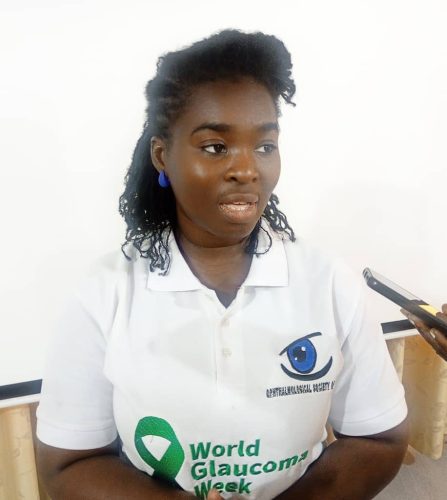

By Carey Rossi Updated on March 17, 2024
Medically reviewed by Rafle Fernandez, MD


The body sometimes shows subtle, early signs of cardiovascular disease—also known as heart disease—which includes conditions like heart failure and heart attacks.

The early signs can include fatigue, feelings of depression or anxiety, and changes in your nails or skin.

Heart disease is the top cause of death in the United States, so it’s important to know what symptoms to look out for as soon as possible.


Symptoms may be different depending on the type of heart disease you have. In some cases, you may not have any symptoms in earlier stages.
Though that may be the case, the following symptoms are some that people may see early on.
1. Shortness of Breath
Shortness of breath isn’t an exclusive symptom of heart disease. When it is, your shortness of breath can be the result of problems with the heart’s valves or its ability to pump blood.
For example, with heart failure, fluid leaks into the lungs because blood is caught in the blood vessels that send blood from your lungs to your heart.4
2. Fatigue
This isn’t just “lack of sleep” tired; it is extreme fatigue. Think of how you feel when you get the flu—except it doesn’t go away. The heart has a hard time pumping blood to the body’s tissues, and the body sends more blood back to the heart and brain.
That said, plenty of people experience fatigue for lots of reasons. If this is your only symptom, you can talk to a healthcare provider, but don’t conclude you have heart trouble based on this alone.
3. Feet or Leg Swelling
Swollen feet can occur for several reasons, such as pregnancy, varicose veins (swollen veins that can be seen beneath the skin), or lack of movement when you travel, for instance). Swelling can also be a sign of heart failure, a chronic condition in which the heart pumps blood inefficiently.5
4. Dizziness
If you have ever been to a gym, you may have seen warning signs to stop walking, running, cycling, or stepping if you feel dizzy or lightheaded. Dizziness is one of those symptoms that can have many causes, including heart disease.
Lightheadedness could be caused by blockages in arteries that lessen blood pressure. You might also feel dizzy due to problems with heart valves.6
5. Pain While Walking
Hip and leg muscle cramps that hurt when you move but feel better when you rest could be a sign of peripheral arterial disease (PAD). PAD is a buildup of fatty plaque in leg arteries that is linked to a higher risk of heart disease.7
6. Depressive Feelings
Depression on its own is probably not a sign that you have heart trouble, but mental well-being is linked to physical well-being. Studies have suggested that people who are depressed are at greater risk of heart trouble. One study indicated that cardiovascular disease and depression can be risk factors for each other.
7. Skin Discoloration
Changes in the color of your skin can be a sign of heart disease. The color changes may be the result of:5
Blocked arteries
Blocked blood vessels
Infected blood vessels or heart
You may find that your skin has a bluish or purplish tone, especially on your toes, or that there’s a blue or purple pattern that looks like a net on parts of your body. The soles of your feet or palms of your hands could also have brown or red spots.5
8. Migraines
A headache may be only a headache in some cases. Regular migraines, however, can suggest that something may be amiss with your heart.
Researchers have found a connection between cardiovascular events and migraine—particularly for migraines with aura as a symptom.
Aura is a condition in which recurring headaches occur along with other sensory disturbances, such as flashes of light or blind spots.10
9. Audible Heartbeat
While some people adjust to the sound of their heartbeat and often change their sleeping positions to avoid hearing it, that doesn’t mean you should ignore it. The ability to hear your heartbeat, called pulsatile tinnitus, can be associated with heart disease.11 Tell a healthcare provider if you’re being lulled to sleep by the “thump-thump” of your heart to determine the actual cause.
10. Nail Changes
Heart disease can also manifest in or around your nails. Clubbed fingers—when fingers become swollen and nails turn downward—are a symptom of a heart infection or heart disease. Reddish or purplish lines under your nails that you know aren’t due to an injury can potentially point to heart problems.5
11. Panic Attack-Like Symptoms
Anxiety, sweating, and nausea are classic symptoms of a panic attack, but they could also be early signs of a heart attack.
If these symptoms are followed by shortness of breath, a feeling of fullness, or aching in your chest, get to an emergency room immediately.

Enock Akonnor is an experienced Ghanaian journalist, based in Kumasi and currently serves as the CEO and Managing Editor of www.leakyghana.com.
With a wealth of expertise built over many years in the media industry, he has earned a solid reputation as one of Ghana’s most sought-after journalists.
Contact:
📞 +233 541 921 562
✉️ enockakonnor2013@gmail.com











